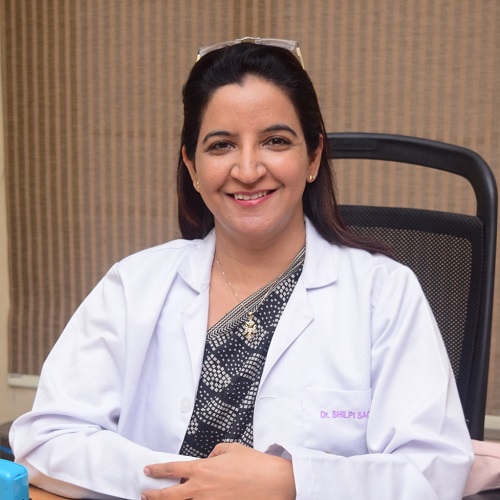Menopause is a natural physical change experienced by all women, but it can affect each woman differently. It typically occurs between the ages of 45 and 55, when a woman's ovaries stop producing eggs and her body experiences hormonal changes. Many symptoms associated with menopause can have a considerable impact on quality of life, including hot flashes, night sweats, mood swings, sleep disturbances, and joint pain. With the right treatment plan and lifestyle modifications, these issues can be managed effectively.
What are menopause issues?
Menopause is the term used to describe the natural process of a woman's body transitioning to a non-reproductive state. It usually occurs between the ages of 45 and 55. However, it can sometimes take place in younger women due to medical conditions such as premature ovarian failure or hysterectomy.
During menopause, levels of oestrogen and progesterone drop significantly, which can cause symptoms such as hot flashes, night sweats, sleep problems, vaginal dryness, and mood swings. Longer-term issues include increased risk of osteoporosis, heart disease, and cognitive changes. Treatment options include hormone therapy, lifestyle changes, and complementary therapies.
What causes menopause issues?
Menopause issues are typically caused by a decrease in the production of hormones like oestrogen and progesterone. As these hormones naturally reduce during menopause, it can cause several physical and psychological symptoms. This may include hot flashes, night sweats, vaginal dryness, reduced libido, irritability, anxiety, or depression.
Furthermore, due to the reduction in oestrogen levels, women may experience an increased risk of osteoporosis and urinary issues. Lastly, some women may also have higher cholesterol levels, which can cause cardiovascular problems.
What are the treatment options for menopause issues?
Hormone Replacement Therapy (HRT) is the most common treatment option for menopause issues. It involves taking oestrogen, progesterone, and/or testosterone via tablets, skin patches, gels, or implants to replace hormones lost during menopause. Non-hormonal treatments include lifestyle changes such as diet and exercise, as well as complementary therapies such as acupuncture and herbal remedies.
Antidepressants are sometimes prescribed to reduce mood swings, while some women may benefit from cognitive-behavioural therapy (CBT). Anti-inflammatory medicines can be used to relieve hot flushes. Ovarian tissue freezing is a potential future treatment for menopausal symptoms.
What are the risk factors for menopause issues?
The main risk factors for menopause issues are age, family history, lifestyle choices, and medical history. Age is an important factor; most women experience menopause between the ages of 45 and 55. Family history can be a risk factor as well; if your mother or sister experienced early menopause, you may too.
Lifestyle choices such as smoking, drinking alcohol, and a poor diet can also contribute to the onset of symptoms. Finally, medical conditions such as diabetes or autoimmune disorders may increase the risk of developing menopausal issues.
How can one prevent menopause issues?
To prevent menopause issues, it is important to maintain a healthy lifestyle. This means eating a balanced diet, exercising regularly, and avoiding smoking and alcohol. It is also important to get regular checkups to ensure that any changes in health are noticed and addressed quickly.
Additionally, certain supplements, such as calcium and vitamin D, may be beneficial alongside hormone replacement therapy if necessary. Finally, reducing stress levels can help prevent menopause issues from arising or worsening.
It is recommended that you consult a physician if you are nearing menopause or are suffering from any of the menopause issues mentioned above. They will be able to provide the best treatment that will help tackle the issues effectively and lead to a healthier life.
Conclusion
Menopause is a natural transition in life that affects all women differently. However, many women can find relief through hormone therapy and other treatments. By better understanding the symptoms, risks, and treatment options associated with menopause, women can better prepare for this life-changing experience.
With the right support and guidance, transitioning into menopause can be a positive experience for many women. With the right approach to their individual health needs, women of any age can take control of their health journey and enjoy a healthy future.
Request an appointment at Apollo Cradle, DELHI-NCR - Moti Nagar. Call 1860-500-4424 to book an appointment.
Factors such as smoking, a poor diet, and a lack of exercise can increase a woman's risk of developing menopause-related complications such as cardiovascular disease, osteoporosis, and cognitive decline.
Estrogen deprivation during menopause can lead to reduced bone density, increased risk of heart disease and stroke, decreased muscle mass, and changes in mood and cognitive function.
Hormone replacement therapy (HRT) is a type of treatment that uses hormones to replace those lost during menopause. It has been found to be effective in treating symptoms such as hot flashes, night sweats, mood swings, vaginal dryness, and low libido.
There are several lifestyle modifications that may help reduce or manage symptoms associated with menopause, including getting regular exercise, maintaining a healthy diet with adequate calcium intake, managing stress levels through relaxation techniques or counselling, avoiding alcohol consumption, and quitting smoking.

 98% Patient Satisfaction Score
98% Patient Satisfaction Score











